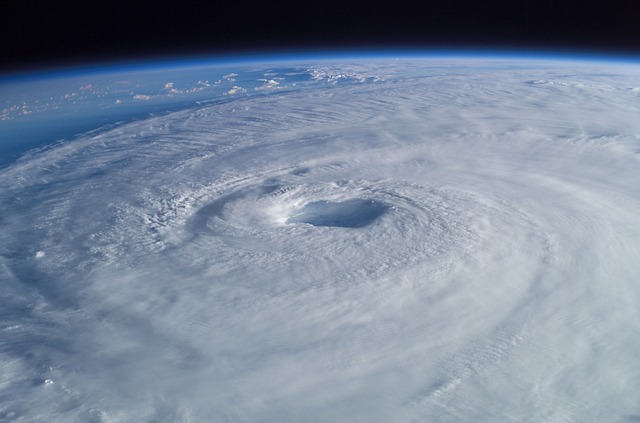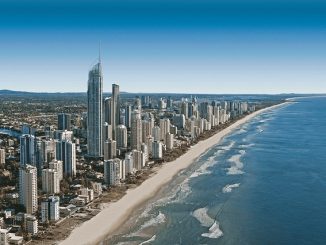
As surely as night follows day, a large hurricane causes the usual suspects to harrumph that this MUST END THE DEBATE OVER CLIMATE CHANGE. Interesting that those who claim to be all about Science® argue that you should base your conclusion on a single data point, or a small number of data points.
This is happening now, as the rain continues to fall in Houston, as I can affirm by looking out my window. There is effectively a pump in the Gulf that is pushing massive amounts of moisture into central Houston, and dumping it on my head.
But as Dr. Wayne Spencer points out, attributing this effectively local event to global climate change is a huge stretch. There are those who hypothesize that greater warmth leads to greater ocean temperatures which leads to more frequent and intense hurricanes. There are those who hypothesize that this mechanism is too simplistic. Further, the evidence that there has been an increase in hurricane frequency and/or intensity is equivocal at best. The nearly nine year pause in major hurricanes in the western Gulf is certainly hard to square with this explanation.
And reading this Texas hurricane history (produced by NOAA) or this Louisiana hurricane history makes it plain that hurricanes are a fact of life in this region, and were long before consumption of oil, or even coal in significant quantities. (They also make me ask myself WTF was I thinking when I moved down here :-P) Scan those publications and you will find numerous monster storms, many of which date widespread use of the internal combustion engine, or even the steam engine.
No, what is making Harvey so horrible is something that I feared when I first saw the forecasts of the track before it made landfall: that it would stall over the coast and drop huge amounts of rain, like Allison did in 2001. And that’s what’s happened, but occurring later in the year and being more powerful (as later storms typically are), Harvey is outdoing even Allison in inundating Houston.
It’s the combination of the track and the economic development of eastern Texas that is producing the current catastrophe: those two things are intersecting in Harris county and the surrounding region. Harris county has grown dramatically over the years, and that creates a bigger target. Further, more development is more pavement and built up area, which doesn’t retain water: there is controversy here, but it is quite plausible that due to the political economy of development, takeaway and retention capacity hasn’t kept up with the runoff, leading to more flood risk for a given amount of rainfall. The Tax Day Storm of 2016 could be another illustration of this.
So what kept Harvey from going inland? A high pressure area in central Texas that moved east and has pushed Harvey back into the Gulf, where it can drink heavily and then relieve itself over Houston. This is a chance intersection of weather events and circulation patterns, not a signal of long term climate change.
This is not unique. Consider Racer’s Hurricane of 1837. It was a huge storm, probably Cat 4 like Harvey–illustrating that global warming is not a necessary condition for the development of such storms. Moreover, it wreaked havoc on the entire Texas coast, then the Louisiana, Alabama, and Florida coasts, before petering out in North Carolina (where it also did considerable damage). If you look at the track it did a sharp u-turn, almost certainly because it hit a high pressure area coming in from the north. (Sound familiar?)
What would have happened had Harvey not hit the high pressure, and continued inland from Corpus Christi? Likely a repeat of the 1921 San Antonio Great Flood, which led to flash flooding in the city, with up to seven feet of water in the downtown area. (No margaritas on the River Walk when that happened, I’m wagering.) Harvey is worse because by stalling over the Gulf, instead of moving inland (as the 1921 storm did) it can continue to replenish its moisture.
So this is about weather and circulation, not climate.
It should be noted that many other extreme weather events used to flog the global warming cause are also attributable to circulation, and in particular, the impact of high pressure systems. The great French heat wave of 2006, and the great Russian heat wave of 2010 were attributed–not by climate “deniers” (whatever the hell that is–who denies there is such a thing as climate?) but by NOAA and others who are sympathetic to the warming hypothesis–to high pressure systems that stalled, creating thermal inversions and extended periods of hot weather.
To attribute what is going on outside my window to climate change would require a credible model, with evidence to support it, showing that the probability of the collision of a major tropical depression and a high pressure system over the Texas coast is higher when the average surface temperature is a degree or so warmer than it was in the past. I’m not aware of any such theory, and reading Spencer, he’s saying there isn’t one.
So rather than try to hijack Harvey to advance a political cause, it’s better to accept it as one of those things in the category of “stuff happens.” In this case, “stuff” is high pressure meets low pressure over Houston. Further, that stuff like this will happen regardless of government policy–imagine the havoc that Racer’s Storm would do today, and it occurred a quarter century before the drilling of the first oil well in the US.
Rather than making this another opportunity for political theater, it would be far better if energies were directed to helping out those devastated by the storm. Texans (with a strong assist from those in neighboring states, especially Louisiana) are coping heroically. We gladly welcome assistance from others, and you know that help will be reciprocated (as it has been in the past). To those attempting to exploit Houston’s misery, shut your pie hole and pitch in. Or don’t pitch in–but shut your pie hole regardless.
- Bulenox: Get 45% to 91% OFF ... Use Discount Code: UNO
- Risk Our Money Not Yours | Get 50% to 90% OFF ... Use Discount Code: MMBVBKSM
Disclaimer: This page contains affiliate links. If you choose to make a purchase after clicking a link, we may receive a commission at no additional cost to you. Thank you for your support!





Leave a Reply